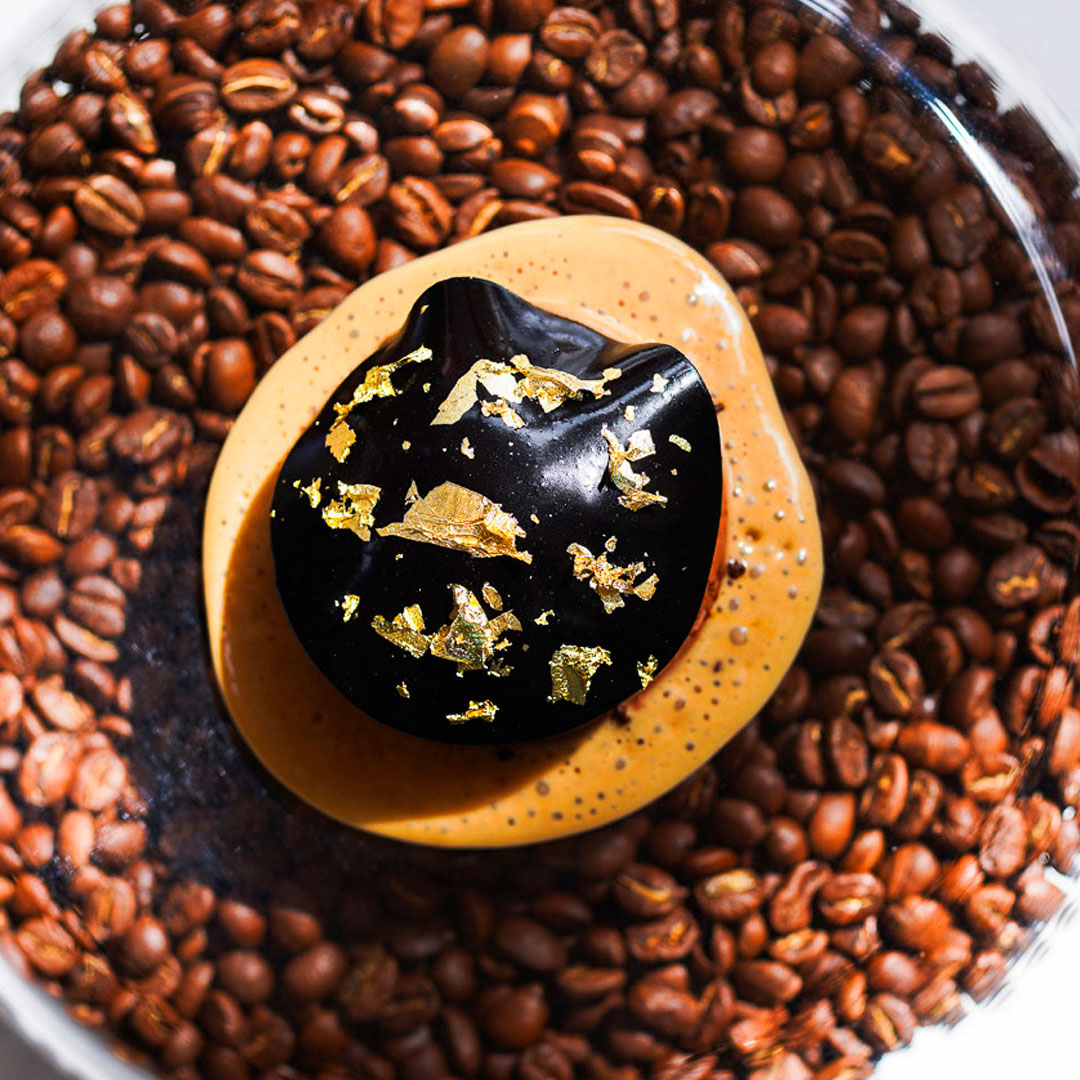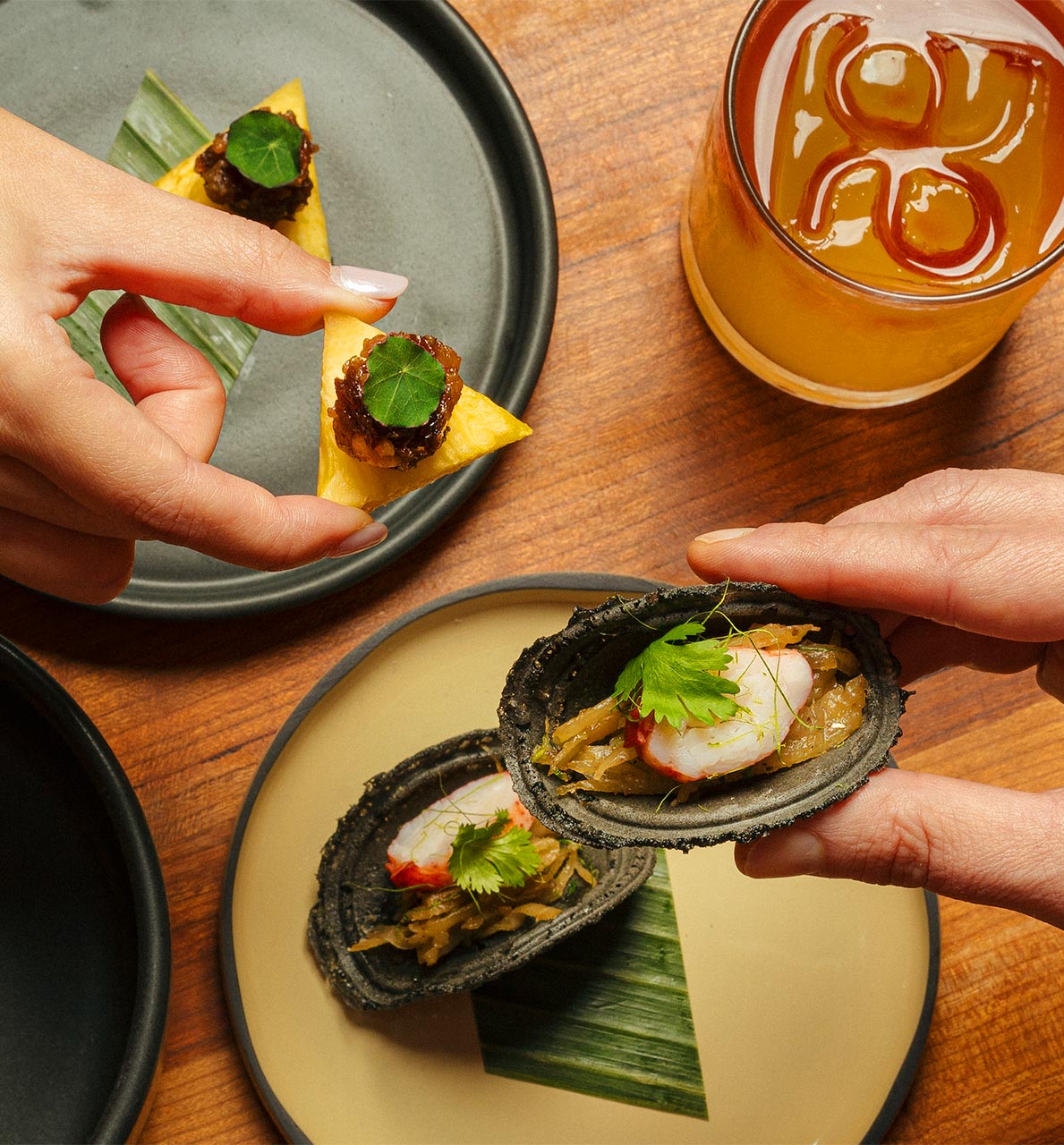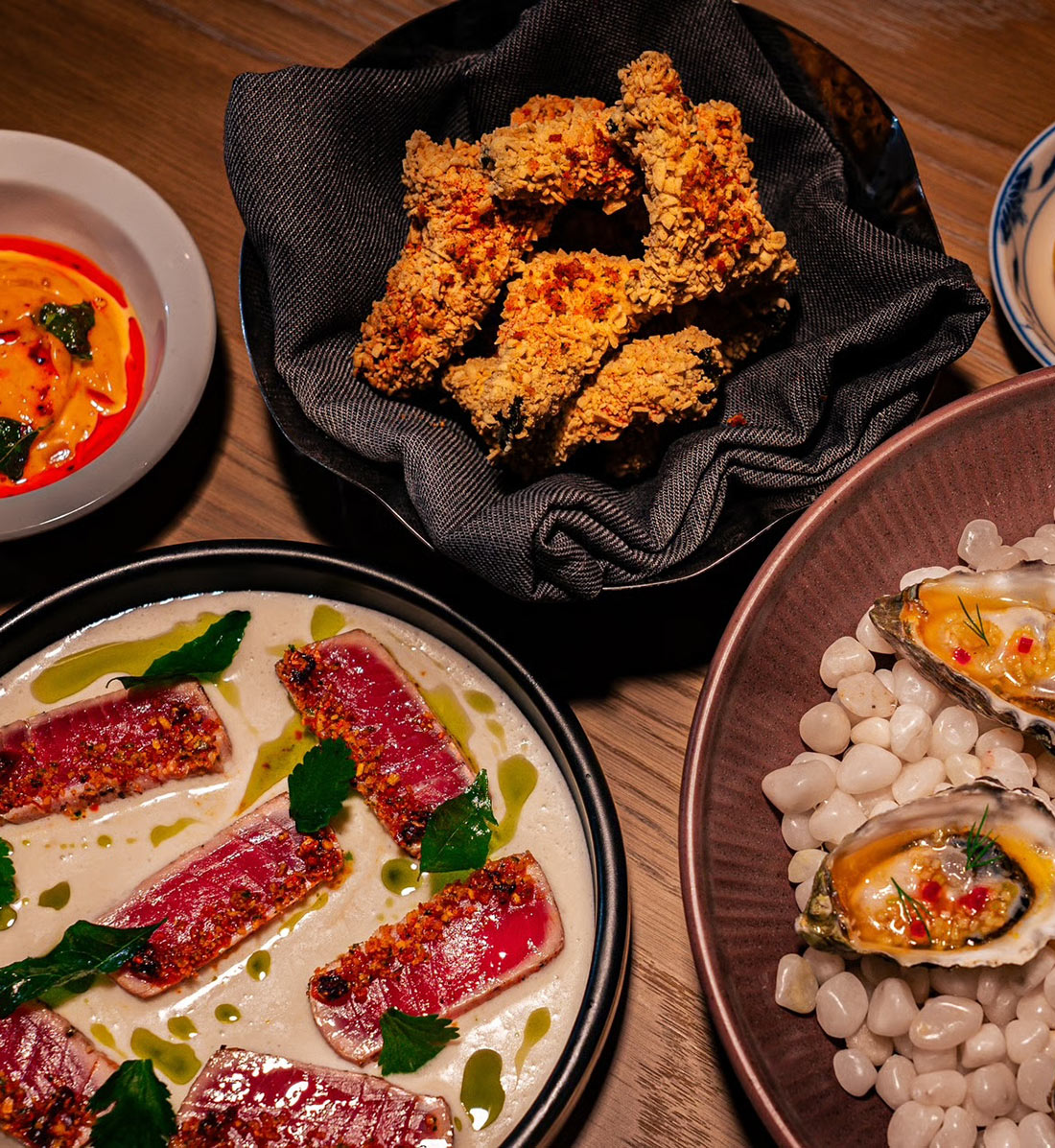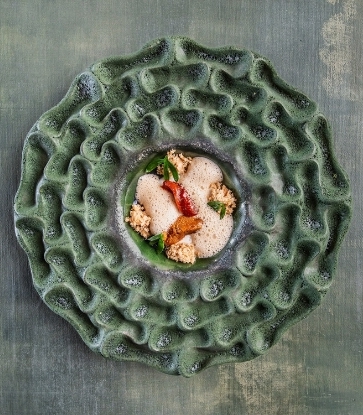Over the centuries, wine vessels have witnessed quite the evolution; from big, bulky goblets to handblown stems of feather-like weight, there’s seemingly an ever-changing definition of quality wine glasses. Right now, however, we’re in the latter trend of thin, ethereal stemware, of which many variations are found at MICHELIN Guide restaurants across the globe.
If you’re looking to elevate your at-home wine drinking experience, look no further than these stunning wine glasses that are used at MICHELIN restaurants but also available for home purchase so you can maintain that MICHELIN-worthy sip on your sofa or at your dinner table.
Glasvin
David Kong started Glasvin as a way to make handblown glassware more approachable. While a single handblown glass can cost about $80, Glasvin’s pair of Universal Glasses are $85, hence their tagline “handblown glassware without the handblown price tag.” The New York-based company features a full portfolio of wine glasses from dessert to a trio of stems, as well as a handblown decanter to build your collection. Their newest line GV Home offers an even more affordable line for those starting their collection, including a full range of cocktail glasses.
MICHELIN restaurants that use Glasvin include: Gabriel Kreuther, Jungsik, Indienne, Sushi Amane, 63 Clinton, Estela, Clover Hill, and Kato.

Italesse
Renowned throughout Europe, Italesse glassware recently partnered with Community Wine and Spirits in New York City to increase the presence of the Trieste, Italy-based stemware in the U.S. The wine glasses blend together exceptional Italian design with craftsmanship for versatile collection that uses technology to ensure durability and clarity for every variety. Some of the most popular glasses are the Etoilè Blanc (used in Uliassi) as well as the Masterclass collection 90 - 70 - 60 - and 48 (used in Harry’s Piccolo).
Other MICHELIN restaurants that use Italesse include: Villa Maiella, Il Lago, Gostilna Pri Lojzetu, Dolada, Osteria Enoteca Cuntitt, and Wisteria.

The Josephine Collection
The Josephine Collection, by sixth generation glass designer Kurt Josef Zalto, is a revival of Josephinenhütte, a 19th century Silesian glass factory, to produce an ultra thin-walled, yet spacious wine glass that’s handblown in Germany. The glasses are available in four styles — No. 1 for white wine, No. 2 as their universal offering, No. 3 for red wine and No. 4 for Champagne.
MICHELIN restaurants that use Josephine include: One White Street, Frevo, Angler, and Petrossian.

Grassl
Swiss-designed and mouthblown, it takes five artisans to produce just one stemmed glass from Grassl Glass Collection. Their Elemental Series is described as a durable and functional line for the casual wine taster while the Vigneron Series offers a “weightless and functional design to capture the winemaker’s intended signature.” For example, the Mineralite is designed for white wine or sparkling varieties to bring focus to the nose with a narrow opening. Their Cru glass was designed for wines from the highest quality vineyards, with a bulbous that permits gentle swirling to open up the singular aromas from terroir driven sites.
MICHELIN restaurants that use Grassl include: Atelier Crenn, Addison, Aubergine, Manzke, Odette, Igniv Bad Ragaz, Restaurant Widder, Restaurant de l'hôtel de ville, and L’enclume.

Riedel
As the pioneers of varietal-specific stemware, Riedel maintains their reputation for their lightweight, crystal glassware while continuing to innovate with new series from stemless to classic collections (like Vinum, Sommelier, and Veloce). Their latest release is a reintroduction of Superleggero glasses; machine-made glass, which the brand celebrates for the ability to create a more precise bowl and rim diameter than handblown glasses. The glasses are a series of superlatives as the largest, thinnest and lightest glasses with the widest base diameter of up to 106 mm to be produced by machines.
MICHELIN restaurants that use Riedel include: The French Laundry, Eleven Madison Park, Addison, Daniel, Jean-Georges, Cote, Press, The Surf Club, Plumed Horse, and Cote Miami.

Schott Zwiesel
Borrowing its name from the Bavarian region in Germany where they’ve been producing glass since 1872, Schott Zwiesel creates a number of delicate glasses, with the most preferred series being Pure. The Pure collection features 11 stemmed glasses and six tumblers, in addition to carafes and decanters that are in a modern presentation with striking contours that create international brand recognition. There’s also The First, Enoteca (a personal favorite of Tim Raue in Berlin) and Forté that cater to a wide variety of drinking preferences.
MICHELIN restaurants that use Schott Zwiesel include: Tail Up Goat, Sepia, Luce, Ai Fiori, Alinea, Fiola, and Spruce.
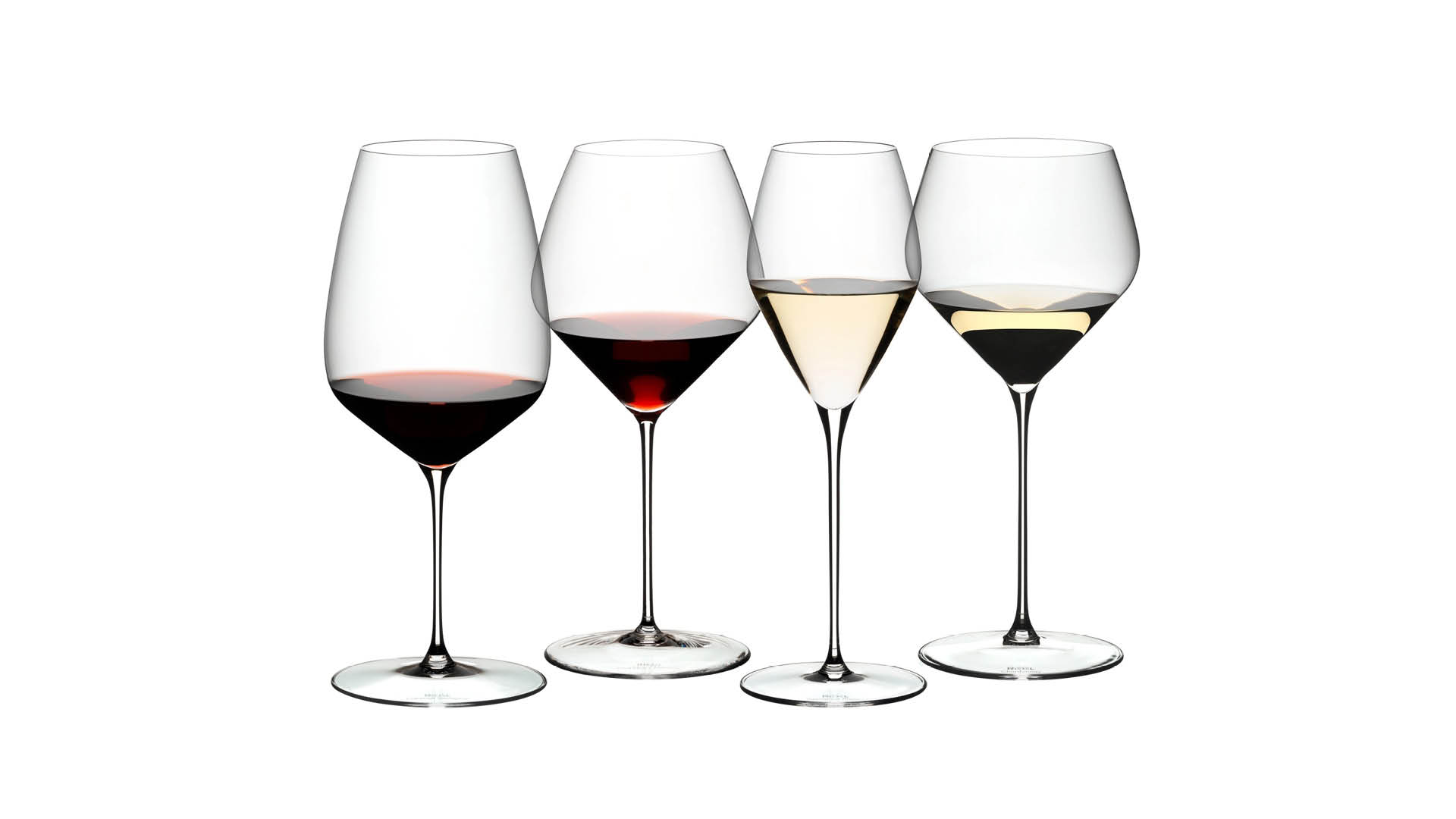
Gabriel-Glas
Though many brands produce a Universal Glass – designed for any style of wine from bubbles to red wine – at Gabriel-Glas, the Universal Glass is the star of the show. There are only three styles available – a machine blown, a hand-blown and a stemless glass all designed to flatter any type of wine. The lead-free crystal glasses are laser cut around the rim for an ultra-thin drinking experience and the stemmed versions are created from one piece of crystal, eliminating any clunky feel due to seams.
MICHELIN restaurants that use Gabriel-Glas include: Quince, Saison, Hayato, Lazy Bear, Commis, Aburi Hana, The Dabney, Angler, Cyrus, Omakase, and The Progress.

Hering Berlin
Stefanie Hering began creating ceramics for fun, but after accumulating a cult following from MICHELIN and design-savvy restaurants, she expanded her portfolio to include her Domain glass series. At the end of last year, Hering expanded that series with a complete set of stemware produced by one of the oldest European glassworks in Květná, Czech Republic. The collection is distinguished by the flowing curves of its silhouette, created using traditional, mouthblown craftsmanship.
Look for Hering's creations soon!

Hero image: The Josephine Collection









